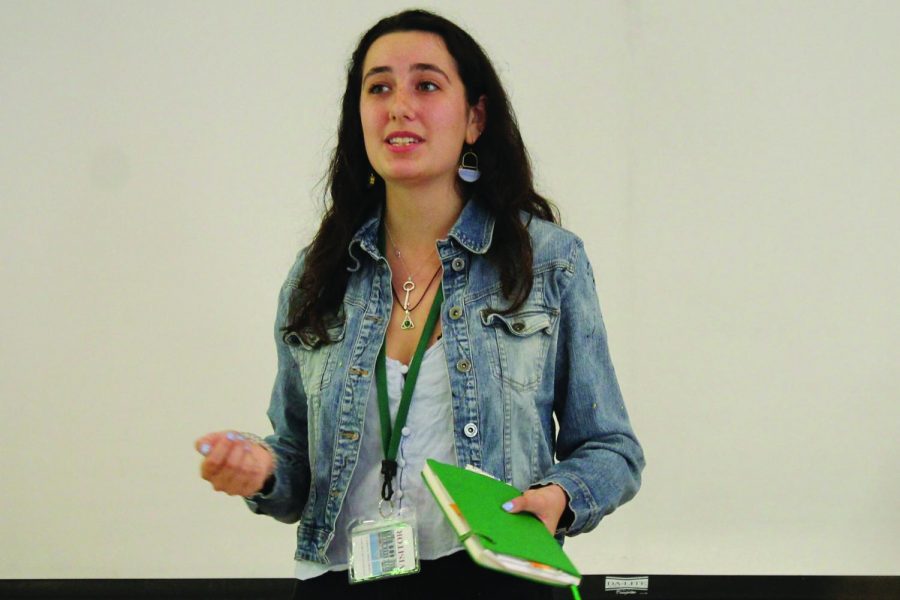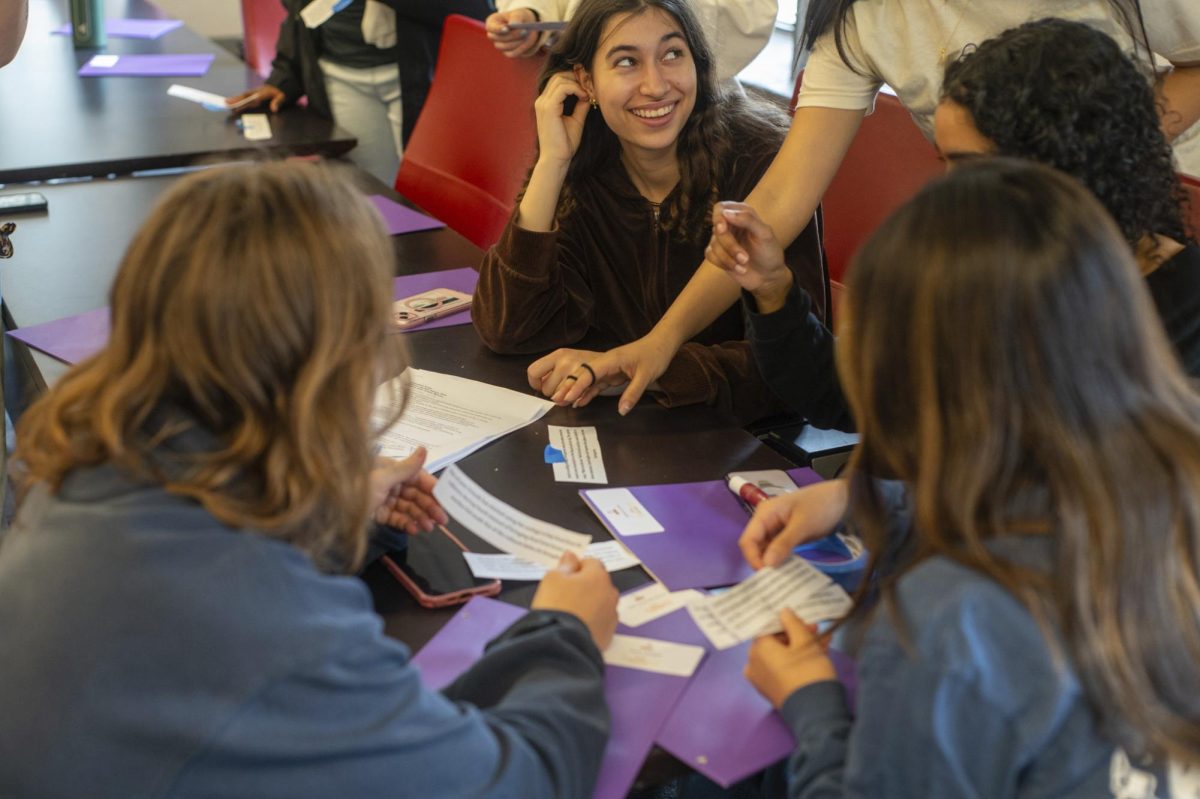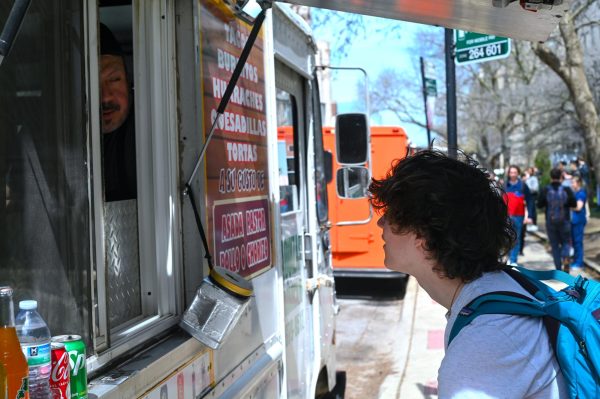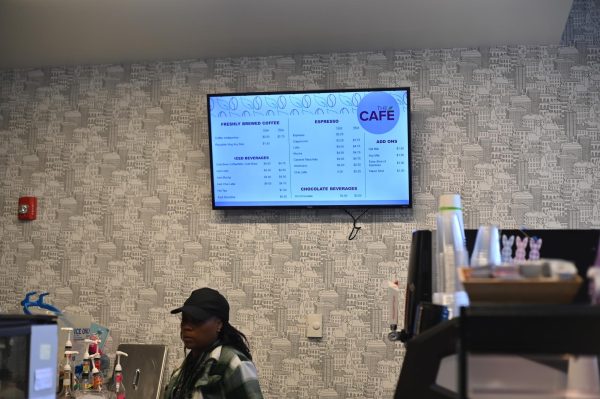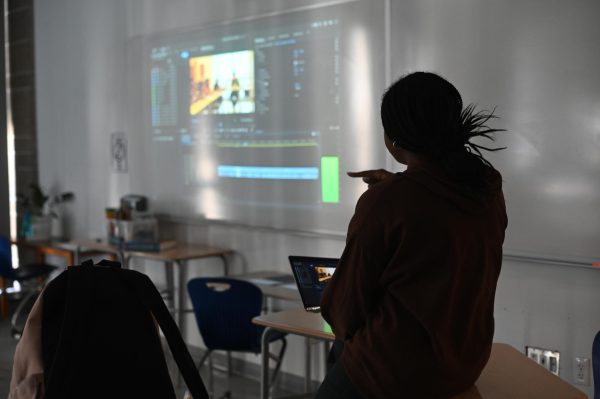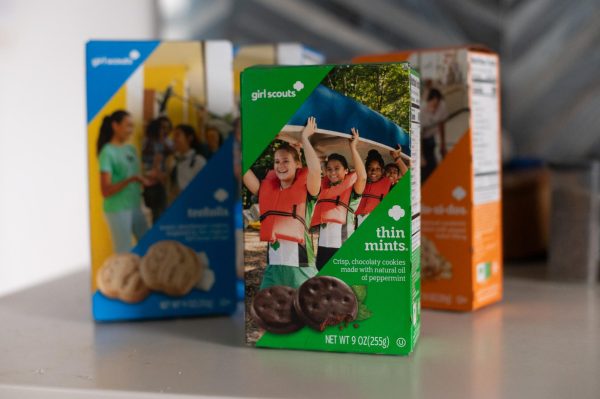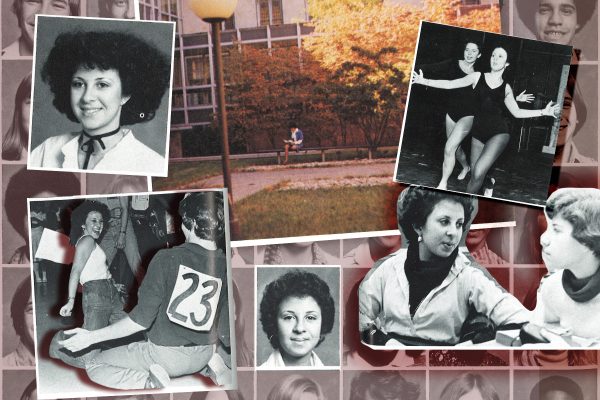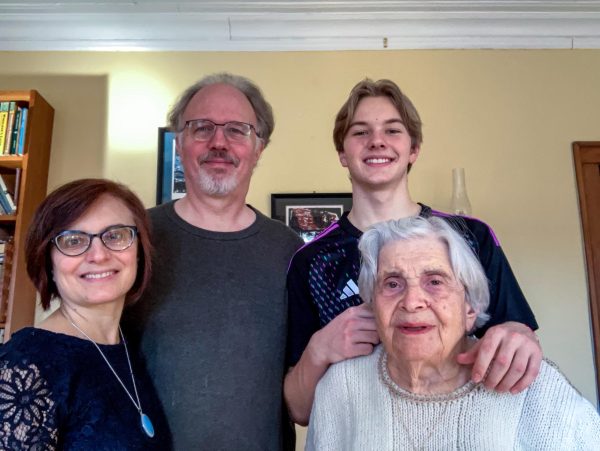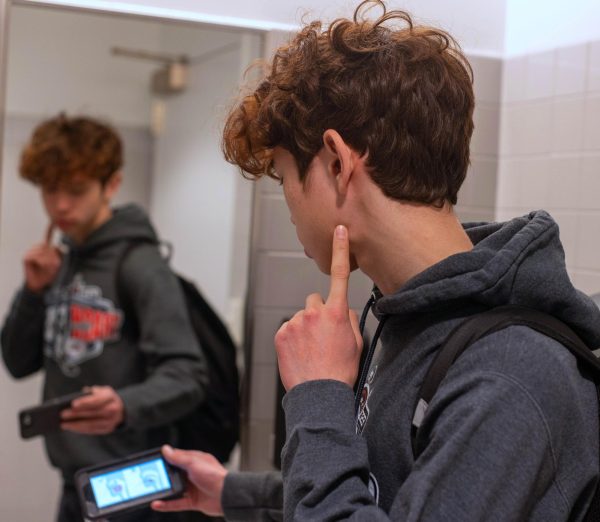Graduates see world before college
U-High graduates share stories of their gap years, urge students to follow their lead
Macy Beal
GO YOUR OWN WAY. Natalie Glick gives a presentation on May 29 to the Class of 2020 about her gap year in Brazil. Traveling with Global Citizen Year, an organization that helps young adults plan international gap years, Ms. Glick spent seven months working with young children while being immersed in Brazilian culture. She urged students to consider the option of delaying college for travel, an experience she said rebuilt her confidence after years of basing her self-worth on grades. For Ms. Glick, the people she met, along with the cultural nuances she learned to navigate, made her gap year a memorable one.
June 4, 2019
White-capped waves glisten below a setting sun. As an endless ocean laps at her ankles, Natalie Glick can see her future on the horizon. It’s all quite daunting, but she smiles, mid-frolic, and relishes the Brazilian shoreline while she still can.
Forgoing an immediate transition to college, some 2018 U-High graduates took a “gap year” — learning, traveling, and finding themselves in the process. One year later, it’s time to take the next step.
For Ms. Glick, who worked with young children in Brazil, the experience wasn’t always easy. Confronted with language barriers and emerging cultural tension, she often didn’t know how to navigate this new, unfamiliar country.
“Language was one of the hardest things I encountered,” Ms. Glick said. “I didn’t know Portuguese when I got to Brazil, and I was living with a family that didn’t speak English.”
In my experience, a lot of U-High is about college. When I was doing college apps, I kind of swept the idea of a gap year under the rug, and I got super caught up in the competitiveness of it all. — Natalie Glick
Additionally, some of her daily interactions were with ardent supporters of far-right president Jair Bolsonaro, which Ms. Glick struggled with. Through difficult mealtime conversations, Ms. Glick said she developed both the skills and the emotional resolve to listen to different perspectives, however upsetting they may be.
That was what she expected when she signed up for an extended experience through Global Citizen Year.
“We were there for seven months, so we had to learn to adapt to these cultural nuances, and I think that’s a super valuable lesson.”
Ms. Glick, who returned April 15, will attend Mount Holyoke College next year. She said U-High’s academically rigorous culture limits students’ perspective.
“In my experience, a lot of U-High is about college,” Ms. Glick said. “When I was doing college apps, I kind of swept the idea of a gap year under the rug, and I got super caught up in the competitiveness of it all.”
However, as the process started to wear away at her mental state, she began to look for alternatives and eventually settled on Global Citizen Year’s gap year program. Reflecting on her experience, she said it restored her confidence.
“I value myself now based on who I am — not my accomplishments, the awards Lab gave me, or my grades,” Ms. Glick said.
For Sonny Lee, a 2018 graduate who worked at farms in both Alaska and Hawaii, a gap year hardly seemed like an option. However, when he was taken off the waitlist at his top-choice school, and accepted under the condition that he take a gap year, he began to consider it.
“It wasn’t my plan at all, but it was a happy coincidence,” he said. “My parents never really knew the idea of a gap year, because neither of them went to college. In their minds, college was the next step, but when they found out it would give me the opportunity to go to this school, they were completely OK with it.”
Both Mr. Lee and Ms. Glick say U-High’s environment should be more supportive of those considering a gap year, and focus less on the college race.
Ms. Glick said, “There’s no reason to rush. In the long run, a year doesn’t make a difference.”



